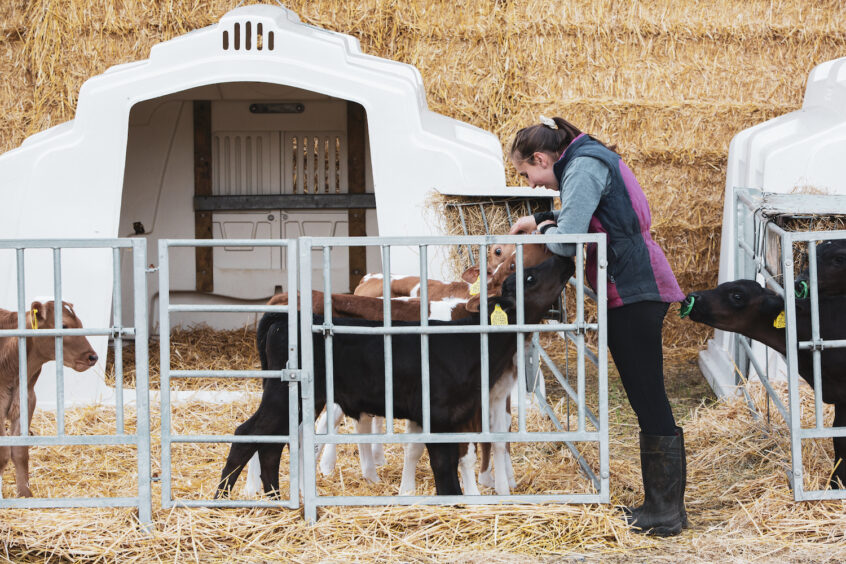Facility maintenance is one of the most important parts of raising cattle. That doesn’t just mean repairing your barn and pens. To keep your herd safe, regular cleaning is also essential. This is especially true when it comes to cleaning calf pens. Read on to find out the importance of cleaning calf pens and a few key tips for raising a healthy herd from the get-go.
The Importance of Cleaning Calf Pens
Cleaning calf pens is important because it helps reduce the chance of disease spreading. Scours and pneumonia are two of the most prevalent illnesses that can afflict dirty calf pens and are common causes of calf mortality. Proper sanitation will prevent your calves from being exposed to these and other diseases.
When manure builds up in a calf pen, it can host disease-causing organisms and increase the chance of both exposure and death. Regularly cleaning up the droppings from adult cows and newborn calves is essential to prevent manure from piling up and posing a health risk.
Calf Pen Maintenance
The importance of cleaning calf pens cannot be overstated when it comes to supporting calf and herd health. Here are some helpful calf pen maintenance tips to get you started:
Remove Soiled Bedding
Cleaning calf pens isn’t just about getting rid of clumps of manure regularly. Any soiled bedding should also be removed and replaced with fresh shavings often to prevent disease exposure.
Clean Equipment Daily
Feeding equipment and calf teat buckets should be sanitized daily. Remove these items from the pen and clean them using hot water and a disinfectant solution to remove bacteria, and then apply a chemical agent for more effective sanitization.
Clean Milk Off Surfaces
Milk can be tough to get rid of once it gets onto equipment or other surfaces, but it needs to be removed for proper calf pen cleaning. The fats and protein in the milk quickly form a biofilm, which contains nutrients that promote bacterial growth.
To fully remove milk from surfaces, rinse equipment with warm water. Then, soak in a solution of hot water and chlorinated alkaline detergent and then wash the equipment with the solution, scrub with a brush, rinse with a solution of cold water and chlorine dioxide added, and let dry.
Wear Gloves and Disinfect Boots
When employees handle calves, they should always be wearing disposable gloves. This prevents bacteria from spreading from the hands to the calves and causing illness. Before entering and after leaving a calf pen, employees should also disinfect their boots to reduce the chance of transporting potentially contaminated material between pens and around the barn.
Keep Calves Safe with Quality Calf Pens
Calf pen maintenance starts with installing quality calf pens in the first place that are sturdy enough to stand up to the test of time and sustain regular cleanings.
Calf-Tel Calf Pens from Carlson Wholesale are feature-rich and easy-to-configure indoor calf pens. Reach out today to find a calf pen that meets your needs to help keep your calves safe and healthy.
